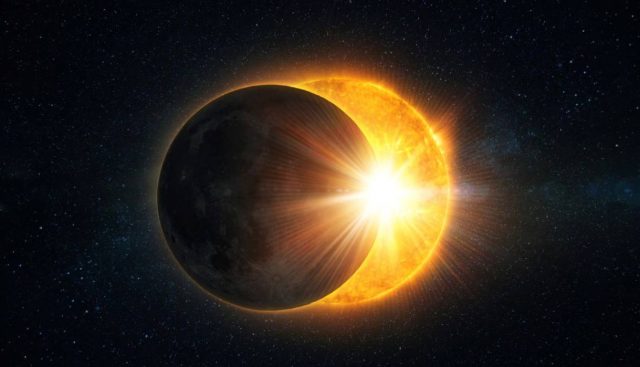The anticipation is building for the upcoming solar eclipse in the USA in 2024. This celestial event offers a rare opportunity to witness the beauty of the cosmos, but it’s crucial to prioritize safety while enjoying the spectacle. With the right preparations and knowledge, you can make the most of this extraordinary occurrence.
What is a Solar Eclipse?
A solar eclipse occurs when the moon passes in between the sun and Earth, blocking out its light.
This happens during a New Moon phase, where the illuminated side of the moon is facing away from us. Depending on where viewers are located, they may be able to see a partial or total eclipse. The 2024 total solar eclipse will be visible as it moves across parts of the USA.
1. Understanding Solar Eclipses
A solar eclipse occurs when the moon passes between the sun and Earth, temporarily blocking the sun’s light.
The upcoming solar eclipse in 2024 is expected to be a total eclipse, where the moon will completely cover the sun, casting a shadow on Earth.
This event offers a breathtaking view, but it’s important to note that looking directly at the sun, even during an eclipse, can cause severe eye damage.
2. Using Solar Eclipse Glasses
One of the safest ways to view a solar eclipse is by using solar eclipse glasses such as https://solareclipse.us/eclipse-glasses/.
These specially designed glasses are equipped with a solar filter that blocks harmful ultraviolet and infrared radiation, allowing you to observe the eclipse without risking your eyesight.
When choosing eclipse glasses, ensure they meet international safety standards (ISO 12312-2) and come from reputable manufacturers.
3. Purchasing Authentic Eclipse Glasses
To avoid counterfeit glasses that may not provide adequate protection, buy your solar eclipse glasses from reputable vendors.
Science centers, planetariums, and official eclipse websites are reliable sources. Look for the ISO certification mark on the glasses to ensure their authenticity.
4. Checking Glasses for Damage
Before using your solar eclipse glasses, inspect them for any scratches, punctures, or defects. Even the tiniest flaw can compromise the protective filter. If you discover any damage, replace the glasses immediately.
5. Properly Using Eclipse Glasses
When it’s time to watch the eclipse, follow these steps for safe usage:
- Put on your eclipse glasses before looking at the sun.
- Stand still and cover your eyes with the glasses.
- Look at the sun only when it’s completely covered by the moon during totality.
- Do not remove the glasses until the moon starts to move away from the sun.
- Supervise children and ensure they use the glasses correctly.
6. Alternative Viewing Methods
If you can’t find eclipse glasses or prefer other methods, there are safe alternatives to directly viewing the eclipse:
- Pinhole Projector: Create a simple pinhole projector using cardboard, allowing sunlight to pass through a small hole onto a surface where you can observe the sun’s projection.
- Telescope or Binocular Projection: Project the sun’s image onto a white surface using a telescope or binoculars, but make sure not to look through the lenses while aiming at the sun.
7. Photography Safety
If you plan to photograph the eclipse, it’s crucial to protect your camera’s sensor as well. Use a solar filter designed for cameras to prevent damage to the equipment. The same rule applies: never look at the sun through the camera’s viewfinder without proper protection.
8. Sharing the Experience
Experiencing a solar eclipse is a memorable event to share with friends and family. Educate those around you about the importance of using proper eye protection and safe viewing methods.
The solar eclipse in the USA in 2024 promises to be a remarkable event. By prioritizing safety and following the guidelines provided here, you can witness the awe-inspiring beauty of the eclipse while safeguarding your eyesight.


